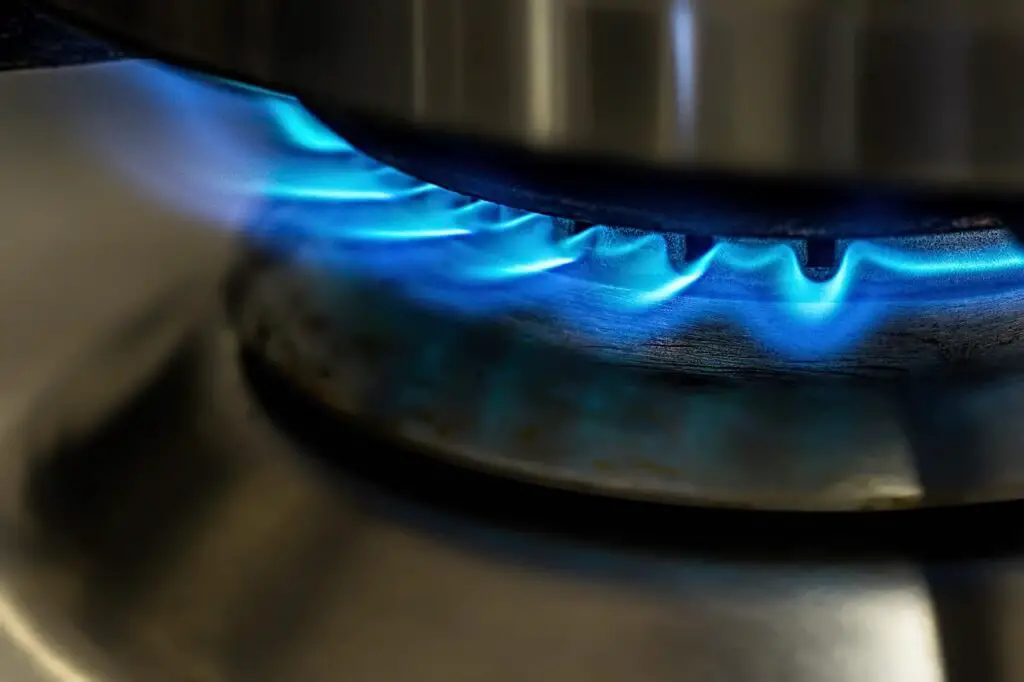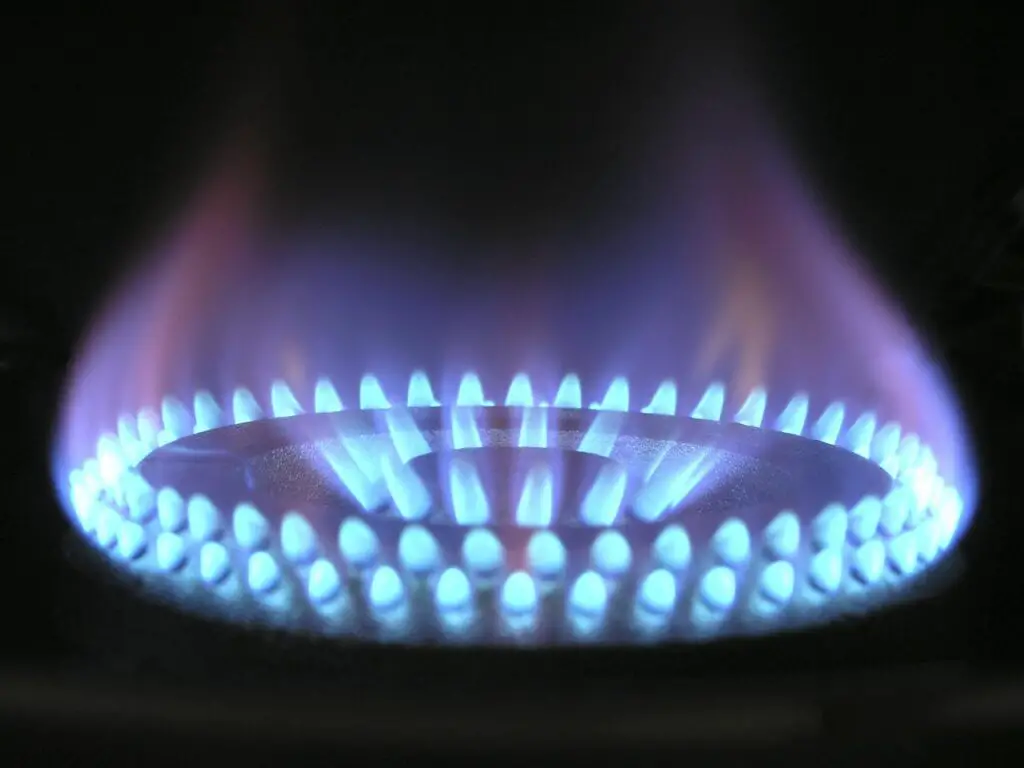
 Save Upto $850 ›
Save Upto $850 ›
No, you should not use your gas stove to heat your house, regardless of whatever masterplan you may have in your mind.
Well, if you are a regular reader of our blogs/articles you may find out that we love gas stoves/cooktops. Even the chefs love them and the people in far flung areas are dependent only upon these kind of stoves.
However, there are some things you have to keep in mind, that the sole function of your gas cooktop is to cook your food and not to heat your home. I shall satisfy you logically and till the end of this article you will also find the other alternatives for heating your home.
Carbon Monoxide (CO), as asserted again and again, is the biggest element which should be kept in mind, when going for using your gas stove for heating purposes.
Well you tell me why it shouldn’t be? Also known as ‘Silent Killer’ the carbon monoxide gets credit of killing people not only in their sleep but also when they are walking around in their home. A person consuming carbon monoxide just feels a little dizzy that when it has gone a little too far.
Though, Carbon Monoxide burns with natural gas when you light your gas stove, but if leave unattended it can cause CO Poisoning.
Therefore, it should be considered as a big factor to be abstained from using your gas stove for heating your home. Cause any mishap related to Carbon Monoxide can result into the possibly worst fatality.
Well, accidents are never intentional, or welcomed. But they often happens and happens at the time when you are expecting the least of it.
If you leave your gas stove’s burner lit on for heating purpose and intends to let it burn the gas to heat your home while you are doing other things than you are doing the biggest mistake ever.
Why? Because at any times, by any means, the gas flames on your cooktop’s burner can get extinguished. But how is it possible, you ask? Well accidents happen and they don’t really requires any reason.
Reasons can be taken for example as:
Any kind of these accidents can lead to unwanted release of Carbon Monoxide, which will dissipate into your home and can be hazardous for you.
Oh boy you don’t have a slightest of idea. Made from combustion of different gases i.e. oxygen, hydrogen etc. Carbon Monoxide is created. Though a little amount of it is not so harmful. But you should ask yourself how little.
Even 0.5 percent carbon monoxide in atmosphere can kill you.
Whoa, hold your horses, at the time of cooking you are not contracted with that much amount of Carbon Monoxide, if your gas stove is working properly, of course.
Carbon monoxide poisoning, an unseen and odorless gas that can induce headaches, nausea, and dizziness, can be caused by incomplete combustion.
Running a gas stove for extended periods of time may gradually deplete the available oxygen in your home. This results in the formation of carbon monoxide.
Carbon monoxide, if absorbed in sufficient quantities, can kill you before you know something is wrong.
Now where does fire eruption comes from? Well, it is not necessarily the case but the probability of a reason why you shouldn’t use your gas stove to heat house.
Because it increases the risk of a home fire dramatically. If you leave an open flame unattended, surrounding things may catch fire, especially if the space around your cooker is congested or you have hanging items that might fall onto the stove.
Of course you should, these devices are specifically built for cooking food and not heating a home. Go for heater if you really are feeling a little cold. But be careful some experts say heaters too cause carbon monoxide and should not be used overnight. But this is not the case we are discussing here, right?
Don’t be so over-frightened now, cooking on your gas cooktop is not a bad thing. The only problem that we are discussing here is to leave your gas stove unattended. While cooking it is not unattended.
Therefore, you should not worry about anything while cooking.
However, having a ventilation at the time of cooking is the best possible option as extra add-on. Ventilation can be through a vent hood or opening a window or something. Just keep an open area in your kitchen.
Yup, I know it is winter, but there are some precautionary measures that you should take, right?
In comparison to a furnace that runs all day, stoves are designed for intermittent, short-term use.
As some have observed:
Feeling these? Call 911 immediately!
Don’t worry silly! There are Carbon Monoxides detectors which can save you from this kind of calamity like a Knighty Shiny Prince.
Check that you have a decent, functional carbon monoxide detector near your bedroom. This will notify you of carbon monoxide leaks and other problems.
However, it is also pertinent to mention here that you should check the condition of your alarm batteries, especially if your system is hardwired and you haven’t changed them in more than six months. Even if the batteries appear to be good, replace them right away.
If you lose power, the indoor temperature of your home may fall below 32 degrees Fahrenheit. According to some experts, this can harm your gadgets, such as carbon monoxide detectors and smoke alarms. This can result in a life-or-death situation if your house catches fire or if there is a gas leak.

Well, all the reasons are described hereon already. But you still want to go for it, isn’t it right you Daredevil?
It all boils down to recognizing your risk level and attempting to reduce the chance of a carbon monoxide problem in your house.
We don’t suggest it, but if you must use your stove or another device as a heat source, here’s what you should do at the very least to protect yourself:
If you really are persistent then you can use it for heat your home for only about 10 to 15 minutes owing to the condition that you are directly supervising it and nothing else is catching your attention.
After that 10 to 15 minutes, if you feel your room is hot enough than you should turn it off right away.
Do not leave it unattended. We think it is the phrase that should be asserted over and over and over again. For the sake of your safety, you should not try to leave your gas stove while doing some other task. NO.
When your power is off, it may be tempting to go to bed with your house warm and pleasant. However, you should NEVER leave your gas stove on overnight because this can lead to serious carbon monoxide problems.
Before retiring to bed, turn off your stove and double-check that it’s turned off. If the power is still out when you go to bed, pack lots of blankets and wear comfortable clothes.
If you’ve seen air streaming in from behind your windows and doors, you could have used a towel to keep the warm air in (and the cold wind out.)
However, if you use a gas stove in that area, you’re likely trapping carbon monoxide inside as well, which can be fatal.
Before using your gas stove, remove any homemade devices that restrict air passage.
Now consider this, you cannot use your gas stove because of Carbon Monoxide dangerous, and your furnace stopped working.
Pretty scary, right?
Well, we are ready to rescue you! Below are the some alternatives in chronological order, helping you to get the best possible alternative thereof.
Just use an electric heater, simple! Alright, I know this is not the case and you were waiting for some genuine alternatives but considering electric heater as an option won’t be a bad idea.
Besides, it could be taken as an ideal option to the extent of leaving your heater unattended while you are doing anything.
Ooh now I understand, then you can use a catalytic gas, biofuel or kerosene heater. Wood burner is also an option here. All you got to do is just use consider the correct fuel type as per your need. How to do that? Contact your local gas providers, your building maintenance team, or any plumber (we can be of great help here too).
Caution ahead! It is essential to be cautious while using any type of temporary heater since they might cause house fires. In general, keep everything that may catch fire at least three feet away from your heat source.
You should also make sure that there is always someone watching the heater or wood burner and that it is inaccessible to small children and animals by using a fireguard. Pertinently, the alternative heater should be kept in lawn. ALWAYS.
I can feel you bro, the most efficient and the best possible solution for every kind of situation is ‘Portable Heater’. Yes we have saved the best for last. Because we want you to ready man, we don’t want to lose you.
If you need to heat rooms while sleeping, consider placing soapstone blocks next to the heater during the day and then placing the warmed blocks in bedrooms when the heaters are turned off at night.
When coping with power breakdown, particularly in winter, a vent hood should be considered in mind. Regardless of its costly price, it can help you save your life which is more precious.
You know you can die from the lack of oxygen easily then die from freezing to death.
Put on some additional clothes. If the cold is extreme, your bed may be the warmest place to be. Use additional blankets and covers to retain body heat; this is especially effective for keeping youngsters warm. Farm family may choose to seek sanctuary in the cattle barn’s relative warmth.
Well, if you look around you find many alternatives available already and you got to improvise them:
If you don’t find any reliable sources then get close to your family. Means you have to select a room where you all can be get together for a longer period of time. It can be any room like your drawing room or bedroom.
To select a room in this regard. First of all check which of the room is warm in your home and does not have any large windows. A basement in this regard is a very good example but first you have to check whether it is warmer than your house’s other rooms or not.
When you have selected a specific room, isolate it from other rooms and close its windows and doors, and hang bedsheets or heavy curtains over doorways as a temporary walls.
While it may be tempting to use your gas appliances to remain warm, it is a very risky thing to do.
If you really are stubborn for using gas stove for heating your home then you should use it under your surveillance only.
Other than that, we recommend finding a new, safer heating source as quickly as possible to safeguard your house from fire, carbon monoxide, and other problems.
External Sources:
ScienceDirect